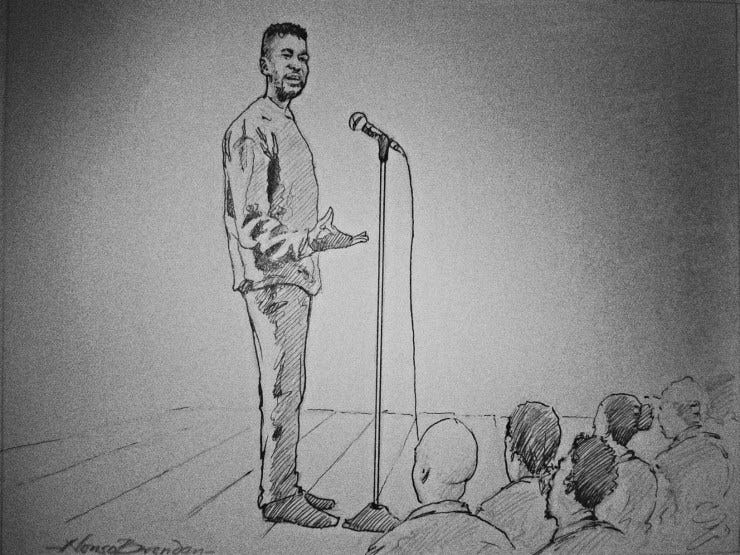A poet’s encounter with fear
When Wayne Samuel won his first national poetry slam, some thought it was a fluke. So he decided to re-apply for the slam’s next edition, to prove his doubters wrong. Then he became afraid, of failure
As he stepped forward to the microphone, he knew what many people did not know: he was about to win the 2017 War of Words (WoW) national slam. His greatest rival and one of the slam’s favourites, the dark-skinned Charlee, had just performed an energetic eulo…
Keep reading with a 7-day free trial
Subscribe to The Question Marker to keep reading this post and get 7 days of free access to the full post archives.


